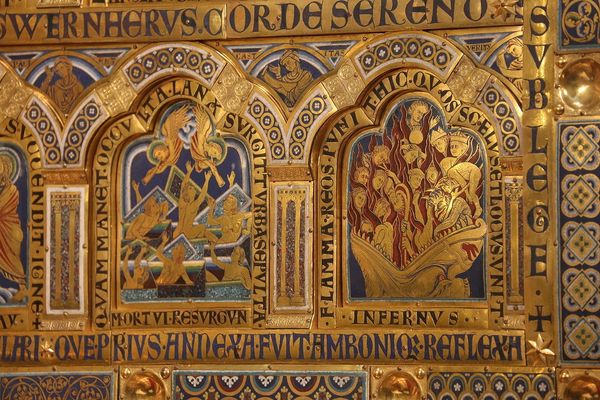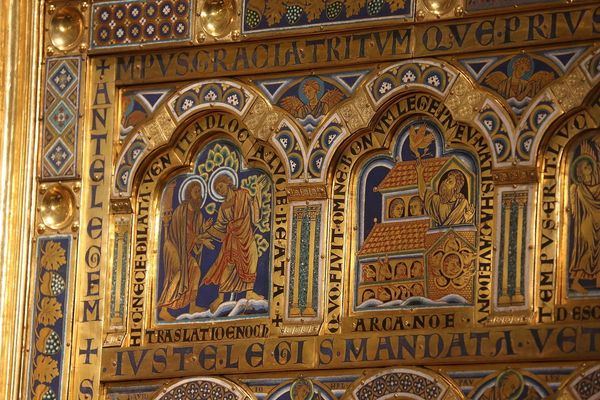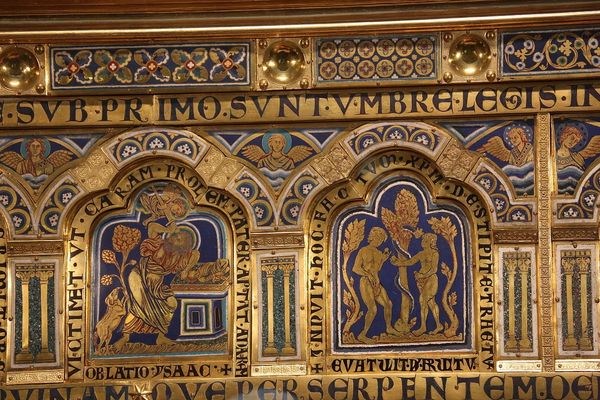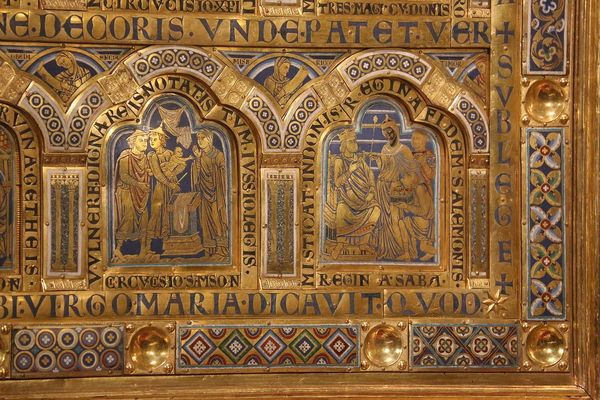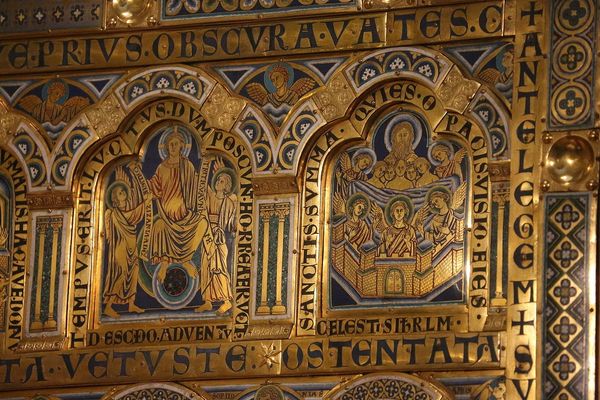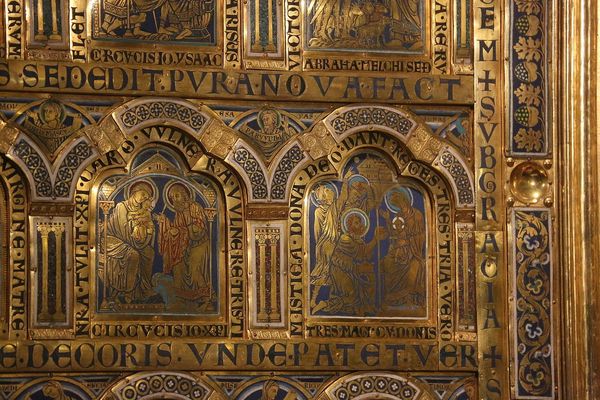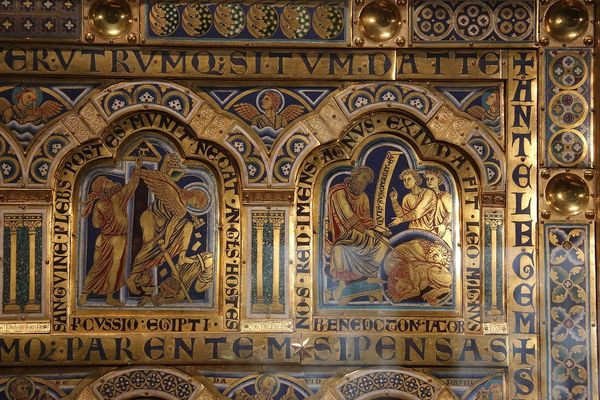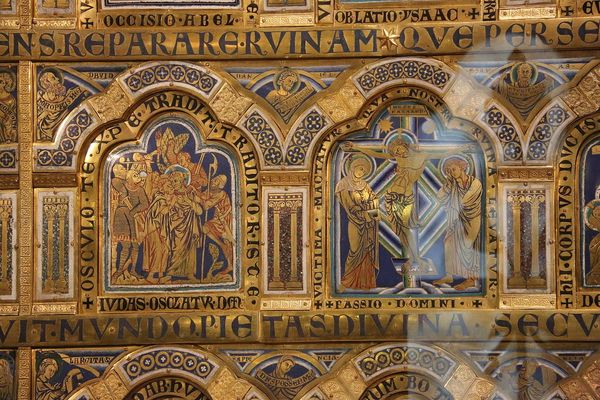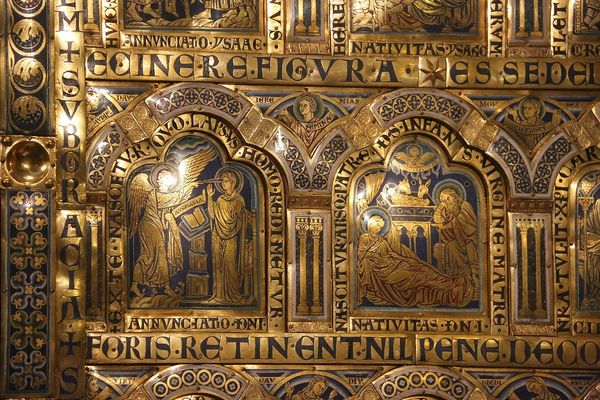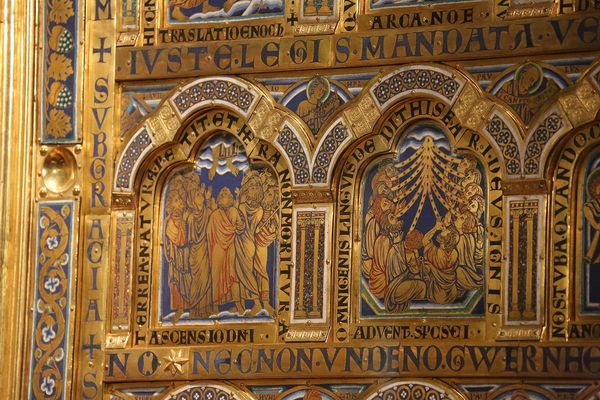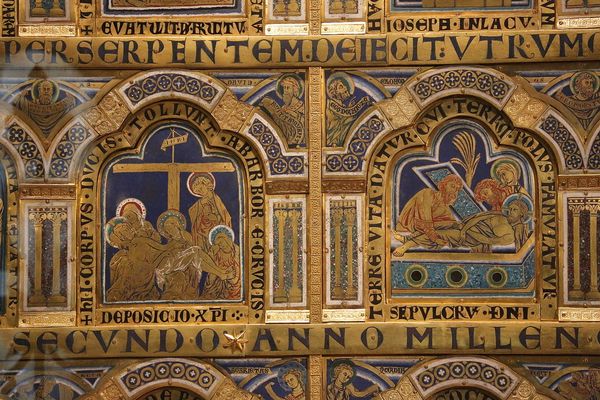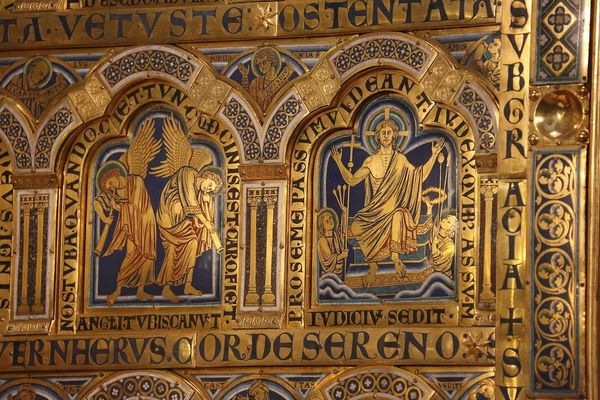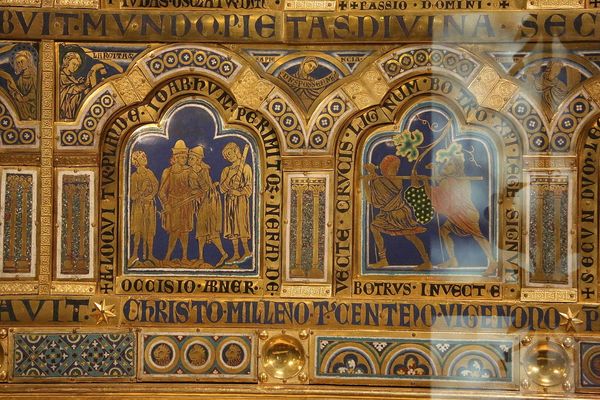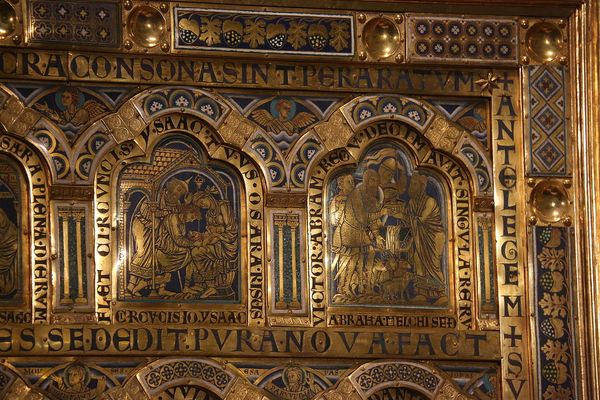
mosaic, carving, tempera, painting, metal, mural
#
mosaic
#
byzantine-art
#
medieval
#
carving
#
tempera
#
painting
#
metal
#
gothic
#
holy-places
#
cultural heritage
#
historic architecture
#
traditional architecture
#
history-painting
#
mural
#
historical building
Copyright: Public domain
Nicholas of Verdun crafted this altar piece using enamel and gold around 1181 in Klosterneuburg, Austria. Dominating this panel are scenes from the Old Testament; Moses receiving the tablets of the law, and the translation of Elijah. Consider Moses atop Mount Sinai. This isn't just a depiction of divine law being handed down; it's a recurrence of earlier, similar motifs, such as the handing down of the law, or authority. We might even venture to see echoes of the law in the Code of Hammurabi, where similar gestures and symbols signify authority. Notice how the flames swirl around Moses, a visual representation of transformation, of the divine fire, echoing Empedocles’s theories of fire, as one of the four elements of the universe. This primal force engages us on a deep, subconscious level. Such symbols recur throughout human history. These motifs aren't linear; they are cyclical, constantly resurfacing, evolving, and taking on new meanings in different historical contexts.
Comments
No comments
Be the first to comment and join the conversation on the ultimate creative platform.
